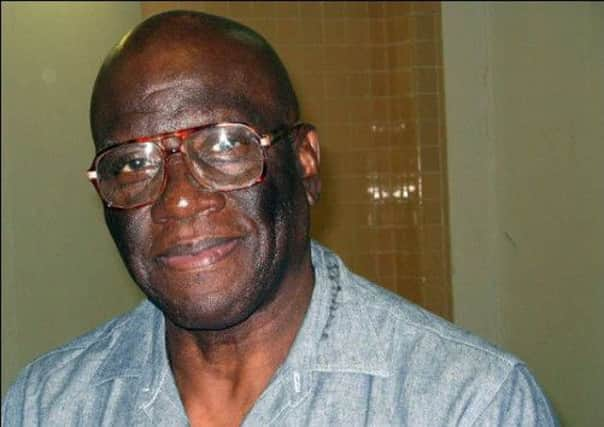After 41 years ‘Angola 3’ inmate is freed to die


Herman Wallace, 71, whose protestations of innocence in the 1972 murder of a prison guard prompted a string of appeals that had bounced around the legal system for decades without success, was last night being treated in hospital in New Orleans.
“Tragically, this step towards justice has come as Herman is dying from cancer with only days or hours left to live,” said Steven Hawkins, executive director of the human rights group Amnesty International USA, which had campaigned for his release.
Advertisement
Hide AdAdvertisement
Hide Ad“No ruling can erase the cruel, inhuman and degrading prison conditions he endured for more than 41 years,” he added.
Mr Wallace was one of three convicts held in solitary confinement at Louisiana’s State Penitentiary – also known as Angola – since the 1970s. They were collectively called the “Angola Three”. One of them, Robert King, was released in 2001 after his conviction for murder was overturned and he pleaded guilty to a lesser charge, and the other, Albert Woodfox, is now held in a different facility, though still in isolation.
From 1972 until June this year, Mr Wallace spent 23 hours a day locked alone in a cell measuring two by three metres, deprived of social interaction, or access to prison education, employment or rehabilitation. He was allowed to exercise outside his cell for three hours a week, alone and in a locked cage.
He had begun his incarceration in 1971 for armed robbery, but was moved to solitary confinement in 1972, accused of stabbing to death a prison guard, Brent Miller.
No physical evidence was ever presented that linked him to the killing and fellow inmates who testified at trial as “eyewitnesses” were later discredited, one of them because he was certified as legally blind.
Mr Wallace maintained his innocence, claiming that he had been made a scapegoat by prison authorities who took a dim view of him having founded a prison chapter of the Black Panthers, the black nationalist group, to campaign against the violent regime at Angola, advocate for better conditions and assist fellow inmates with legal appeals.
The plight of the Angola Three became a cause célèbre for the human rights movement. They were the subject of two documentaries, one narrated by the actor Samuel L Jackson, and of parliamentary outcries from countries including Britain.
Mr Wallace was finally released from solitary confinement in June, vowing that he would continue to fight to prove his innocence. “The deeper they bury me, the louder my voice becomes,” he pledged from behind bars.
Advertisement
Hide AdAdvertisement
Hide AdRepeated legal appeals that aimed to prove his innocence failed over the years, but on Tuesday night a judge sitting in Baton Rouge overturned his conviction on the grounds that, because women were excluded from the grand jury that indicted him for murder, his 1974 trial was unconstitutional.